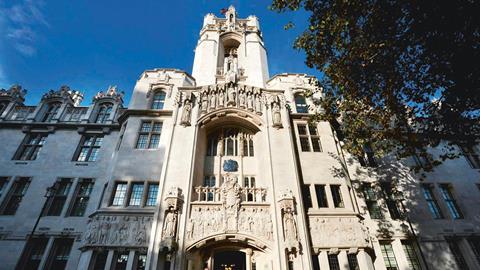The Supreme Court has begun the search for a new chief executive who will be tasked with ‘influencing important relationships’ between the judiciary and the executive – in what will be a crucial time for judicial independence.
The role at the UK’s highest court will pay £100,000 a year. An advertisement posted on the Civil Service Jobs website states that more may be available for an ‘exceptional candidate’. There is no mention of legal qualifications being required.
The advertisement states that the successful candidate will ‘need to build on the good work of the last 10 years and lead the administration of the court into the future. The court has exciting ambitions to utilise digital services and transform the way the court has operated since 2009’.
The chief executive will report to the president, Lord Reed. The successful candidate will manage court operations, supporting the president, deputy president and the 10 other justices. They will influence ‘the important relationships’ between the judiciary, executive and legislature ‘to ensure they are effective’. They will help to achieve the court’s target of hearing all appeals within nine months of permission to appeal being granted. They will lead and manage 50 staff and 40 contractors, maintaining a staff engagement score of 70% or higher.
The Supreme Court’s powers have come under increasing scrutiny following the Article 50 and prorogation rulings. The prime minister, Boris Johnson, has hinted that a US-style vetting process could be introduced for Supreme Court appointments. He appointed barrister Suella Braverman, who has called for politicians to take back control from ‘unelected, unaccountable’ judges, as attorney general. This week Lord Reed, president of the Supreme Court, denied that judges had over-extended their reach.
The current Supreme Court chief executive, Mark Ormerod, is retiring this summer. Ormerod, who has been in post since 2015, was previously chief executive of the Probation Association. He is also a former chief executive of the Law Commission and director of civil and family justice. Between 1993 and 1996 he was principal private secretary to the lord chancellor, Lord Mackay of Clashfern.




























7 Readers' comments